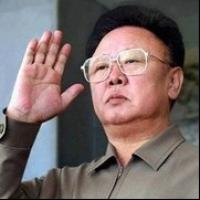
Stalinist nightmare continues
The death of the long time Stalinist dictator of North Korea brings no relief to the workers of the country. They suffered many years under Japanese occupation (1905-1945), then during the Korean war (1950-1953) and many, many years of the most ruthless Stalinist rule. After the collapse of the Soviet Union, the economy of North Korea suffered setbacks and it is estimated that more than two million people lost their lives during famines at the end of the 1990s. North Korea is now one of the poorer countries in the world, but until well into the 1970s, the income per head of the population was higher than in South Korea.
Stalinist rule in North Korea adheres to the “Juche“ ideology, of ‘self-sufficiency’. The North is unsuitable for food production, because it is mountainous and cold. It has many minerals in its soil, even quite rare ones. The Chinese government prefers the present regime because it gives them relatively easy access to these minerals, and North Korea provides it with a buffer. If North Korea ceased to exist, China would border a country that houses a large contingent of American military forces.
For Japan and South Korea, the presence of the Stalinist regime is discomforting, but it provides a useful excuse for obscene military expenditure. One of North Korea’s military trump cards is that it possesses a nuclear bomb. This seems to be a fairly primitive thing, like the American nuclear bombs in their early stages of development. It is probably too big to fit on a missile, but the North Koreans conducted two test blasts after the US invasion of Iraq, to show the world that they too had the bomb. North Korea’s large land force is meant to defend the country and to repress the population; there is no credible air force or navy.
Most of the expenditure of North Korea is on its military apparatus. This will not change. The new leader, Kim Yong Un, is young and there is no doubt that the military council will firmly hold on to the reins of power. If they do not fall prey to dissension, they could hold on to power for quite a while – the regime has shown itself to be quite tenacious. The regime has effectively isolated the country and ruthlessly repressed any independent working class activity.
Life in North Korea is a nightmare for workers: a harsh struggle for survival in a country with has almost no heating and extremely low temperatures in winter, little and/or very primitive food, and almost no lighting (often one bulb for an apartment). Life is difficult for workers even if you do not take into account the horrendous repression, the concentration camps, the controls over the family and the workplaces, the total lack of information (mobile phones and internet are prohibited) and the ubiquitous secret police.
The death of this tyrant has again provided the representatives of capitalism with an excuse to besmirch the ideas of socialism, despite the brutal reality that this regime, among the most horrific and oppressive band of despots ever to have falsely bore the name. The CWI stands for a struggle to overthrow the brutal corrupt Stalinist dynasty, an integral part of the international struggle to end the poverty, repression, dictatorship and conflict which dominates the region. Asia, through mass struggle. Such a struggle to establish a workers’ democracy and genuine socialism in Korea, based on the democratic control of government, and planning of the economy, may seem far away at this point in time, but like the North Korean football team, the Korean workers always manage to surprise.

Be the first to comment